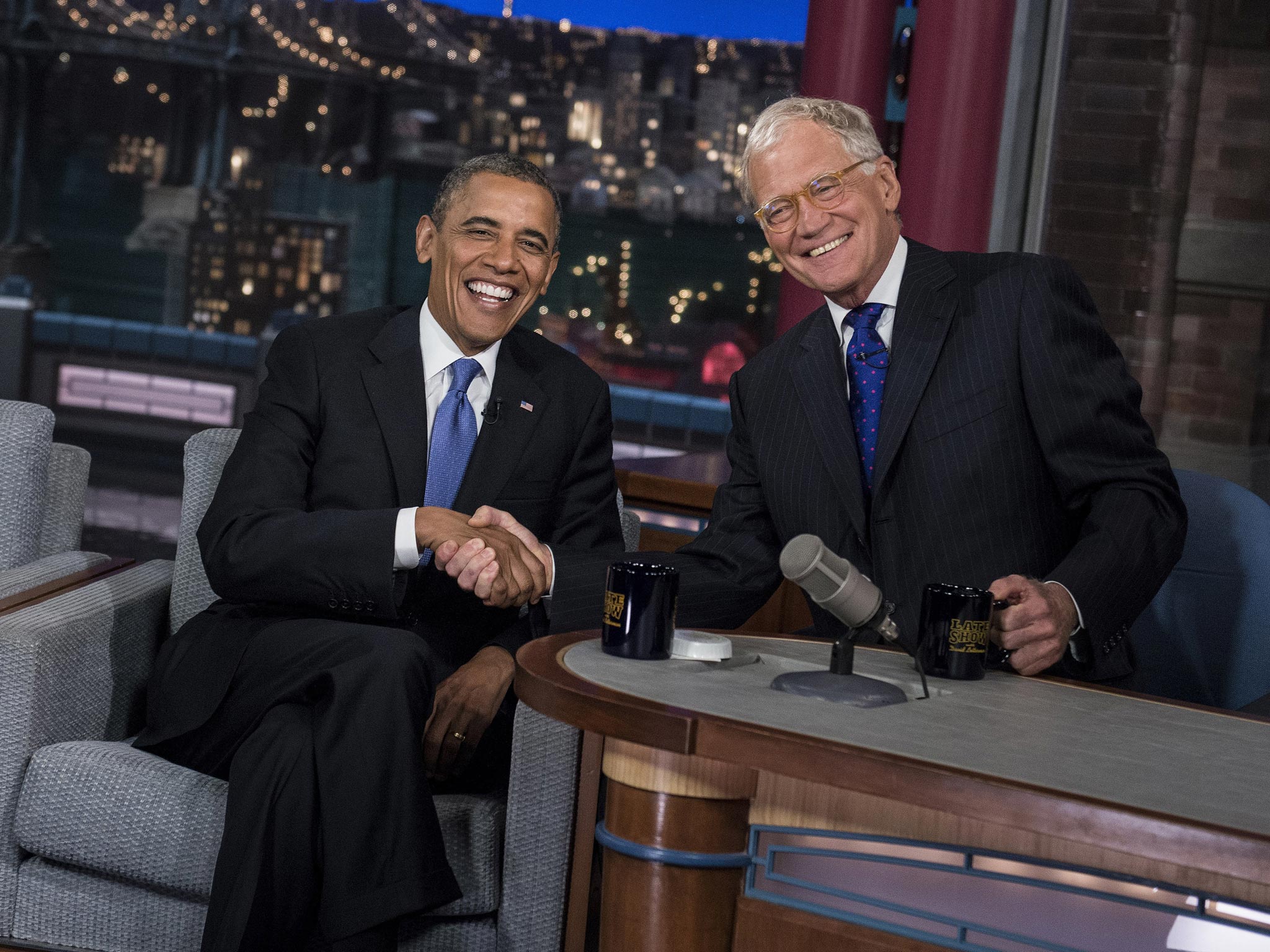First Jay Leno, now David Letterman: Is the golden age of the US chat shows over?
Late-night chat is entering a new era, reports Tim Walker from Los Angeles

The game of thrones that is US late-night television entered another round this week, as David Letterman announced his impending retirement after more than 30 years as a talk-show host.
Late-night legend Letterman, who turns 67 on 12 April, made the surprise announcement during Thursday's recording of his CBS programme, Late Show With David Letterman, saying that he would end his tenure at the network sometime in 2015. British audiences remain bemused by the American tradition of late-night TV. Though Graham Norton or Jonathan Ross can draw large audiences weekly, Letterman and his long-time rival, Jay Leno, have beamed into millions of homes every weekday evening at 11.35pm for the past two decades. Leno, 63, retired from NBC’s The Tonight Show in February.
To declare oneself for Leno or Letterman was tribal, an allegiance to one or the other, but not both. The hosts are cultural institutions, with differing comic sensibilities broadcast from opposite coasts. Letterman tapes his show in New York, at the Ed Sullivan Theatre. Leno produced The Tonight Show in Los Angeles, where he took the reins from Johnny Carson in 1992.
The format of such shows has remained ingrained since Carson's day, beginning with the host's topical monologue, leading to a comedy routine, a celebrity interview and a musical guest performance.
The format also demands that each network's late night show be followed by a late, late night show at 12.35am - in CBS and Letterman's case, the Late Late Show with Craig Ferguson. Scottish-born Ferguson is a potential candidate to replace Letterman in the earlier slot, though the bookies favour bigger names for the role, including Ellen DeGeneres, Jon Stewart and Chris Rock. Whoever takes the chair behind Letterman's desk - even if they do away with the desk - their appointment will be front page news across the US.
The first shots of the so-called "Late-Night Wars" were fired in 1992, when Carson announced his retirement from NBC. Letterman was his heir apparent, having hosted a show in the network's 12.30am slot for the previous 10 years. Yet to Letterman and Carson’s dismay, NBC bosses chose Leno to take on The Tonight Show. The following year, Letterman left for CBS, to host his rival 11.35pm programme, where he has remained.
For its first two years, Letterman's show sat atop the late-night ratings, but Leno's Tonight Show has been number one since 1995, when Hugh Grant appeared as a guest shortly after police caught him in flagrante with the prostitute Divine Brown. Another late-night battle played out in 2009, when Leno retired - only for NBC, panicked by poor figures, to bring back Leno to shore up its audience.
Now, the baton has passed to another generation, with 39-year-old Jimmy Fallon taking over The Tonight Show, so far with great success. Fallon and his other late-night rival, 46-year-old Jimmy Kimmel, the host of ABC’s J immy Kimmel Live!, have twisted the format just enough to fit the internet age.
Which is not to say that Letterman himself has not enjoyed some viral moments, such as his on-air admission in 2009 of an affair with one of his staffers. This week, his show featured Bill Murray, who was the first guest on Letterman’s NBC show in 1982. Since then, Letterman has hosted more than 6,000 late-night shows, making him the longest-serving host.
Subscribe to Independent Premium to bookmark this article
Want to bookmark your favourite articles and stories to read or reference later? Start your Independent Premium subscription today.

Join our commenting forum
Join thought-provoking conversations, follow other Independent readers and see their replies